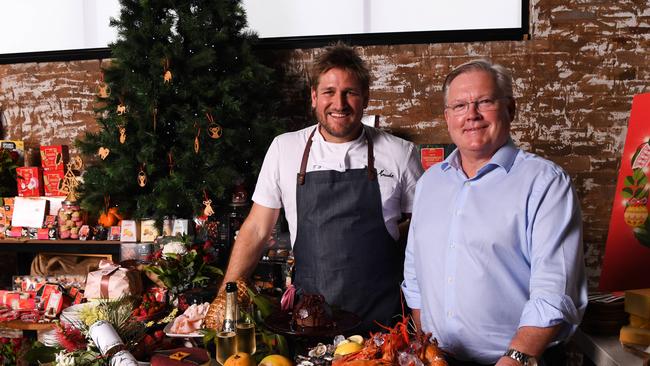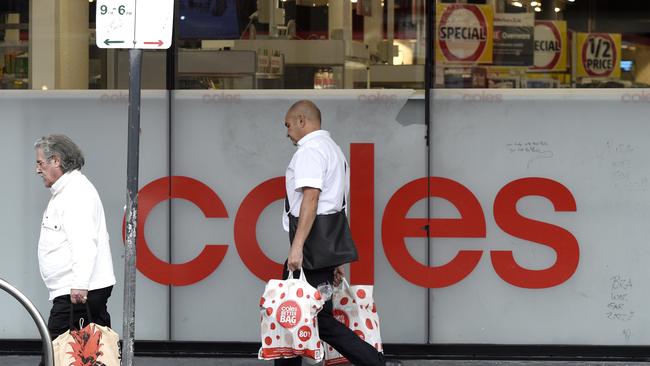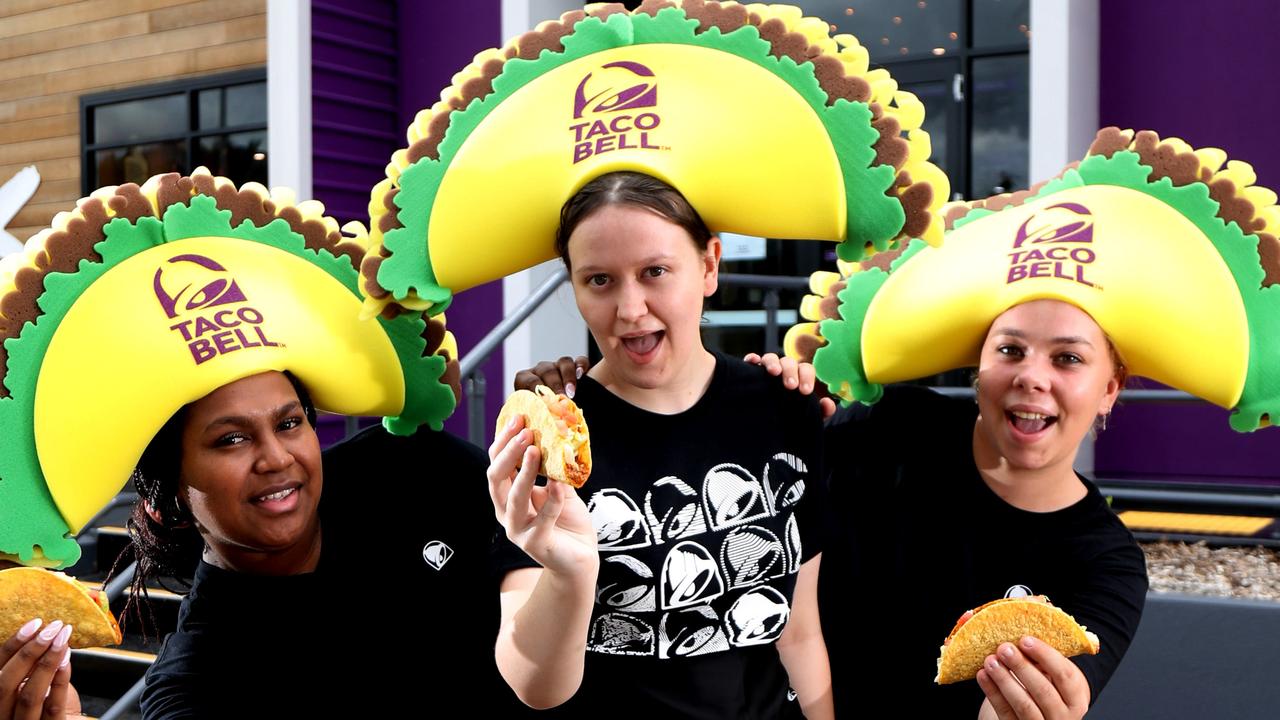Coles boss sees food and grocery price inflation starting to moderate but shoppers still looking to save
Near-double digit food and grocery inflation is slowing, but cheaper private label groceries remain popular with sales of Coles’ own brand pasta up 40 per cent.

The nation’s second largest supermarket operator Coles is starting to witness a moderation of near-double digit food and grocery inflation that for the last year has pinched household budgets with its requests for price hikes from its key supermarket suppliers also beginning to wane.
Falling prices for some key fresh food items such as lettuce, cucumbers and carrots have helped lessen the bill at the checkout over the March quarter, Coles has reported.
However, Australian shoppers facing cost of living pressures led by steeper mortgages and rents as well as soaring inflation for other basic goods and services are increasingly pushing them to purchase cheaper private label supermarket groceries in an attempt to save money.
Consumers were also continuing to shift from expensive red meat into white meat.
The supermarket said that sales of its private label pasta, which includes its popular $1 spaghetti pack, rose 40 per cent year on year with sales of mince also high as households look to cook up cheap meals for their families.
Coles released its third quarter sales results on Friday which revealed that sales of its exclusive or own-brand groceries had spiked 11.4 per cent in the quarter, a theme which began to emerge for both Coles and its rival Woolworths at the start of 2023 as consumers placed more private label products in their baskets and trolleys.
Outgoing Coles chief executive Steven Cain said supply chains were starting to improve which was helping availability although some shortages in key commodities were causing supply issues in some categories such as carbonated drinks. The sales results release is Mr Cain’s last outing as CEO before he hands over to the new Coles boss Leah Weckert.
Ms Weckert said she had witnessed strong growth in sales of private label groceries over the quarter as households looked to save money, as well as shoppers picking up cheaper cuts of meat, with high inflation in dairy also seeing shoppers switch to cheaper milk.
“We are definately seeing customers trade into cheaper options at the moment and we are seeing that happen in a number of places,” Ms Weckert said.
“As you’ve seen in our numbers this morning our own brand is growing faster than the rest of the store and that is because customers are trading down into lower cost options and we are seeing that in really core categories, things like pasta ans rice would be two big call outs.
“We are also seeing customers trade down into lower cost protiens, moving out of red meat into white meat.”
She said the premium or top range of the Coles own-brand groceries was becoming a smaller contribution to sales while entry level priced private label groceries were becoming a larger contributor to sales.
“What I would say is, customer behaviour would say they are optimising their basket at the moment.”
The pressure on household budgets from rising food and grocery prices does however look to be starting to ease with Coles reporting that total supermarkets price inflation of 6.2 per cent moderated in the third quarter, compared to 7.7 per cent in the second quarter with packaged groceries inflation of 7.2 per cent (7.9 per cent in the second quarter) and fresh food inflation of 4.1 per cent (7.1 per cent in the second quarter).
The largest drivers of the moderation were in fresh produce, with some key lines in deflation, including lettuce, cucumbers and carrots and in the meat, deli and seafood category. Packaged inflation also moderated as the business cycled a high level of supplier input cost price increase requests in the prior corresponding period, Coles said.

Inflation in dairy remained elevated as a result of an increase in the farmgate milk price and higher commodity prices.
The level of supplier cost price increase requests received in the third quarter decreased compared to the second quarter with the main drivers of the requests this period relating to raw materials and utilities.
Coles said supermarkets sales revenue of $8.6bn for the third quarter increased by 7 per cent on the prior corresponding period as the business cycled the impacts of Covid-19, floods in New South Wales and Queensland, and flooding in South Australia which led to logistics disruptions in Western Australia and the Northern Territory.
Gross retail sales of $8.9bn increased by 7.9 per cent and comparable sales grew by 6.5 per cent on the prior corresponding period.
Coles said sales growth was supported by the expansion of the ‘Dropped & Locked’ value campaign and the commencement of the latest MasterChef Cookware continuity program which continues until July.
A new range of Flybuys member pricing, providing more value to Flybuys customers, was also launched with member numbers and point redemptions increasing during the quarter. A moderation in consumer hospitality spending and increasing immigration also supported sales growth which was partially offset by a continued industry decline in tobacco sales. Private label groceries, traditionally cheaper than brands, remained popular with exclusive to Coles products delivering $2.9bn of sales, an increase of 11.4 per cent on the prior corresponding period, with 227 Coles Own Brand products launched during the quarter.
Supermarket online sales revenues grew by 2.7 per cent to $662m.
At its liquor arm sales revenue of $801m for the third quarter increased by 2.6 per cent. Gross retail sales of $803m increased by 2.4 per cent and comparable sales grew by 1.5% per cent on the prior corresponding period. Liquor returned to sales revenue growth in the third quarter with the business no longer cycling on-premise restrictions in the prior corresponding period. Sales growth was driven by continued growth in e-commerce of 28.9 per cent as well as growth in the exclusive liquor brands portfolio of 15.2 per cent compared to the prior corresponding period.




To join the conversation, please log in. Don't have an account? Register
Join the conversation, you are commenting as Logout